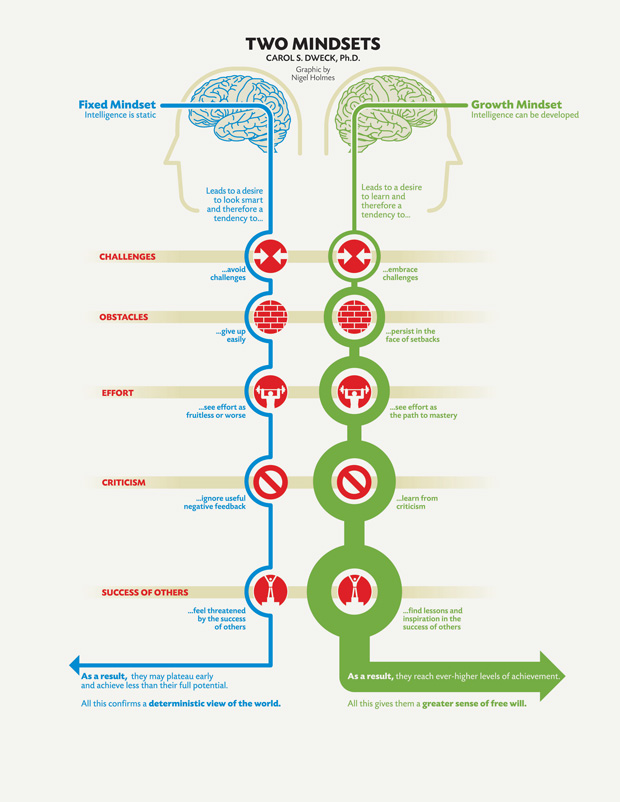Beating Impostor Syndrome for Entrepreneurs – You Are Enough

This post is also available in:
![]()
![]()
![]()
![]()
Unless you are one of those supremely self-assured people, blessed with unshakeable self-belief, more than a bit of arrogance, and the firm knowledge that you will succeed, you have probably suffered from your share of self-doubt or Impostor Syndrome.
The good news is, there are effective tools to overcome and beat it.
What is Impostor Syndrome?
You might know it as something else. Otherwise known as the impostor phenomenon, impostorism, fraud syndrome, you might simply know it as unfounded and crippling self-doubt that you can’t seem to get over.
Whatever you call it, it is still the same self-doubting voice in your head telling you that you’re a fraud or an impostor and not fit for your role in life or work. This voice blocks out all positive ones. It stands in the way of your development and can cripple attempts to build anything for yourself. It can even destroy your drive to achieve anything—the destroyer of dreams.
In technical and psychological terms, Impostor Syndrome is a psychological pattern that causes you to doubt and question your own ability in everything where you might feel insecure or inadequate. You can feel like you don’t deserve your successes (and they might be many) or, worse, attribute them to someones else’s input.
“I could never have done this without … They did everything.”
“I really don’t deserve this success, …. blah blah and blah, worked so much harder and their [whatever] is so much better than mine.”
“Someone is going to tell me I can’t do this. Maybe I should suggest it to someone else who can do it.”
Do they sound familiar?
These repeating cognitive patterns invariably accompany the overwhelming and terrifying fear that someone will expose you and label you a fraud. Unfortunately, these internalised voices shout louder and drown out all the positive achievements and external validation, which merely whispers.
Impostor Syndrome in Entrepreneurs
Impostor syndrome usually manifests most acutely at the beginning of a project or endeavour. It tells you that you can’t do it. Self-doubt cripples the budding entrepreneur and almost always becomes a self-fulfilling prophecy.
The internal dialogue begins:
“I can’t do this.”
“Why am I bothering?”
It might not even be a conscious dialogue. However, once that seed has planted itself. Once the doubt has determined that you will fail, you put in less effort because you are almost resigned to failure.
Unfortunately, impostor syndrome doesn’t always manifest beforehand. It can arrive to decimate your confidence in your already established success.
“How on earth can I do this [next project]? I have no idea how I’ve reached this level of success.”
“How did I sell so many novels? I can’t write. It’s pure nonsense and gibberish. Why hasn’t anyone outed me yet?”
“How did this business succeed? It was a terrrible idea! I’m doing it all wrong. [Competitor] is so much better at this than we are”
Whether impostor syndrome appears every time you have a fantastic business idea, or if you’re suffering through a sudden attack in the middle of a successful career, it’s best to beat it before it hampers your dreams or destroys what you have already achieved.
‘How did I get here? When are they going to discover that I am, in fact, a fraud and take everything away from me?’ “
Tom Hanks
Characteristics of an impostor syndrome sufferer
Many of us experience impostor syndrome differently. However, some common characteristics could highlight your tendency to feel the effects of impostor syndrome and beat it before it manages to get a foothold on your psyche.
- Self-doubt
- Inability to realistically identify your skills and acheivements
- Crediting external sources – like luck or other people – for success
- Fear of not being good enough
- Subconsciously sabotaging your success
- Disconnecting from team members
- Perfectionism
- Overwork and burnout
- Setting impossibly high standards for yourself
- Low self-esteem
- Intense fear of failure
- Decreased self-confidence and more self-doubt
As you can see, it’s a downward spiral. Of course, not everyone will display all these characteristics, and impostor syndrome can manifest differently according to personality type. This article about the different types of impostor syndrome could help you. However, you might find that you display aspects from several different types – we’re all a mixture of personality types; that’s the beauty of the human condition. No one is precisely the same throughout all aspects of their life.
You’re Not Alone: You’re in some pretty incredible company
Did you know that an estimated 70% of the population suffers from impostor syndrome?
While the original study, The Impostor Phenomenon in High-Achieving Women: Dynamics and therapeutic intervention, in 1978 focused on women, subsequent studies have shown that it is equally applicable to men. Some studies have shown impostor syndrome is entirely equal in its effects. However, it has shown to be more prevalent in people who feel some harmful discrimination in their environment or where they’re in the minority. So the impostor phenomenon is significantly influenced by gender and racial stereotypes, culture, and family dynamics.
You also need to realise that despite its expansive reach, impostor syndrome is beatable, and you can achieve your dreams. No matter how unachievable they may seem through the filter of self-doubt.
Some Role Models Who Overcame Doubt to Become Leaders and Stars
So who could be your role model for success in life and work?
Albert Einstein – Theory of Relativity, Nobel Prize in Physics
“The exaggerated esteem in which my lifework is held makes me very ill at ease. I feel compelled to think of myself as an involuntary swindler.”
Howard Schultz – Former CEO of Starbucks
“Very few people, whether you’ve been in that job before or not, get into the seat and believe today that they are now qualified to be the CEO. They’re not going to tell you that, but it’s true.”
Barbara Corcoran – Entrepreneur & Shark Tank Judge
“Who doesn’t suffer from imposter syndrome? Even when I sold my business for $66 Million, I felt like an absolute fraud!”
Sheryl Sandberg – Facebook COO
“Every time I took a test, I was sure that it had gone badly. And every time I didn’t embarrass myself — or even excelled — I believed that I had fooled everyone yet again. One day soon, the jig would be up.”
Maya Angelou – World-renowned author
“I have written 11 books, but each time I think, ‘uh oh, they’re going to find out now. I’ve run a game on everybody, and they’re going to find me out.'”
Lady Gaga/ Stefani Germanotta – Singer, Songwriter, actress, Influencer & Activist.
“I still sometimes feel like a loser kid in high school and I just have to pick myself up and tell myself that I’m a superstar every morning so that I can get through this day and be for my fans what they need for me to be.”
These and more have achieved success and leadership in their respective fields while battling impostor syndrome. There’s hope for the rest of us.
Top Tips for Beating Impostor Syndrome (and it’s precursor self-doubt)
And now to the point of this piece, the tips and tricks to help you anticipate, beat and overcome Impostor Syndrome.
1. Anticipate impostor syndrome to reduce its effects
If you’re lucky enough not to have experienced any acute symptoms of impostor syndrome, but you’ve identified more than half of the character traits that might make you susceptible to it, anticipate what might happen if you decide to become an entrepreneur. By acknowledging the possibility and naming the cognitive patterns that could contribute to feelings of self-doubt and fear of failure, you can proactively introduce some of the tips below to temper its effects.
2. Depersonalise
You are not your job, business idea, or even the project you’re working on. You are so much more complex than any business model you can contemplate.
By depersonalising your business ventures, career paths and significant changes, you can create a separation of work and soul. Even if your business fails or doesn’t perform as well as expected, you are not a failure.
It might be that impostor syndrome appeared to affect more women than men is because men were always considered better at compartmentalising – since debunked as poor science.
3. Control Your Self-talk
You are your own worst critic! If you talked to anyone the same way your mind spoke to you, you would consider yourself awful.
Think of someone whose work is great. It could be a colleague, a subordinate, or even a superior. If you think their work is good, you would say so. Now think about writing a recommendation for them.
Would you hedge your words and think about downplaying their skills, or would you elevate them? I’m not talking about using hyperbole or superlatives (unless they’re warranted, of course). However, you might use excellent or superb to describe their skills rather than good or great.
Now turn it back towards yourself. Would you ever consider writing a reference that didn’t highlight the positives over the negatives? No, you wouldn’t.
4. Control your body language
While you might not believe a lot of the psychological studies about posture or have much faith in meditation and self-affirmation, you want to consider a couple of things about your body language and posture.
When you sit with legs crossed and arms folded, you make yourself smaller in the world, and you make less of an impact. If you want to succeed as an entrepreneur, you want to impact the world. While a guaranteed positive result is not on the cards with so-called “power poses”, sitting up straight with shoulders back and head up can help, even better if standing. It’s not just about improving your mindset and making an impact. You increase your lung capacity and oxygen flow to your brain with good posture, making you more inclined to think more clearly and act more confidently.
5. Look for Evidence & Focus on Facts
Work with facts and evidence if mental exercises in self-talk and postural adjustment aren’t doing it for you.
In the same way, you might list the pros and cons of a new fridge-freezer, list your achievements and your failures. I will put money on the fact that you have a long list of successes, accomplishments and achievements with only a few failures.
I want you to be genuinely honest when you create this list. You have to include the small wins as well as the small losses. It’s easy to ignore the small wins but elevate the small failures to greater significance.
Another way to think about it is what did you learn from your losses? If you understood “how not to do it” from a loss, you have earned another entry in the achievements list.
Another way is to collect examples of positive feedback. Update your ” achievements ” list every time someone has praised your work, given you positive feedback, or even rated you five stars. You can do the same with negative feedback, but you need to be objective. Don’t let unfounded complaints or something out of your control onto the list, and you have no responsibility for something that doesn’t concern you.
6. Write it down
To ensure you always keep your successes and failures in check, write them all down and keep them handy. If you ever feel impostor syndrome is getting the upper hand, take out your list and soak it in.
7. Reframe your mindset Static vs Growth – the power of “.., yet.”
There’s a lot of talk about mindset and how you can overcome certain obstacles by adopting a growth mindset. The basics say that a fixed mindset operates from the position that skills and intelligence are finite and not subject to change. Conversely, the growth mindset can use the same information as a fixed one, but they can see a path to success using ” yet ” effectively.
While the fixed mindset might see obstacles or challenges and try to avoid them or give up, a growth mindset will see them and think, “I can’t do that YET, but I can try and improve, learn and persist.”
The image below is from an article by Carol Dweck, and you can read the full article about fixed and growth mindsets here. It is enlightening and worth reading for fellow impostor syndrome sufferers.

8. Push Your Boundaries
I’m not talking about stepping outside the box or breaking boundaries. But give them a nudge to see how far you can go before the fear or doubt kicks in.
Be patient and compassionate with yourself. It takes time to broaden your boundaries. A pregnant person couldn’t grow a baby instantly without tearing the skin – but it happens slowly, and the body accommodates.
9. Acknowledge, validate, then let go
When you feel like your feelings of inadequacy or self-doubt are getting too much, acknowledge it. Call it out by name. There’s a reason that they used to say that having something or someone’s true name gave you power over them. When you can call something by its name, acknowledge it and accept it, it has less control over you.
Fear is almost always rooted in the unknown. You know that impostor syndrome exists. You know what it is and how common it is. It’s nothing special or unique to you; it’s simply a cognitive pattern of thoughts rooted in the survival mode of the reptilian brain from way back in our genetic ancestry.
10. Let go of Perfectionism and Embrace Self-Acceptance
There’s a reason parents as well as children embraced Elsa from Frozen and sang “Let it go!” with varying degrees of skill and abandon. If anyone has ever had a problem with setting ridiculously high standards for themselves or perfectionism, there is a tiny part that screams for the ability to “let it go” and accept themselves for who they are. For a kids cartoon, it’s a powerful message we should all learn.
No one is perfect, and no one ever will be. The best we can do is be the perfect version of ourselves, which means self-acceptance. You can’t be your perfect you without first embracing who you are.
A quick trick to letting go of perfectionism and embracing self-acceptance – even if you hate musicals – play “let it go!” by Idina Menzel and “This is me” from The Greatest Showman. Listen to the lyrics and sing along. It
11. Share Your Achievements & Accomplishments
If you have ever seen someone celebrating their achievements on social media, you have seen someone celebrating them. It might only be minor, like signing their first contract client or their first year in profit. Or even “we’re still in business after COVID”.
Sharing your achievements lets others know that you have achieved something, but it also allows you to look back and see them.
12. Share how you’re feeling
Given the prevalence of impostor syndrome, the chances are that someone else feels the same way. While it might feel like swimming in a tank full of sharks as you start your business, remember that most of those sharks will have felt similarly in their careers.
You might think that it’s a fast track to failure if you admit to insecure feelings, but talking about your insecurities will help you put them in perspective and is the first step to overcoming your obstacles.
13. Be Courageous
Mark Twain said: “Courage is resilience to fear, mastery of fear, not absence of fear”. You might be suffering from a fear of failure or being “found out” as a fraud. Rationally, you know that you have the skills. No one embarks on a new business adventure or a new job role without at least the bare minimum skills to succeed. Face the fear and be courageous for yourself, your family, or whatever you
Here’s a hint, you don’t need all of the skills. You just need to know how to find people with the ones you don’t have.
Fake it ’til you make it!
No one is expecting you to master impostor syndrome overnight. The skills and mindset need time to adjust. You need to actively pursue the positive every aspect of your business, work and home life. However, you can fake it until it becomes second nature.
You are enough and impostor syndrome is no match for you.
Go forth and take your business to the people who need it. You don’t have to fake the ability to do this, you already have it. You just might have to fake the confidence with the skills above.


Comments
0 commentsNo comments yet